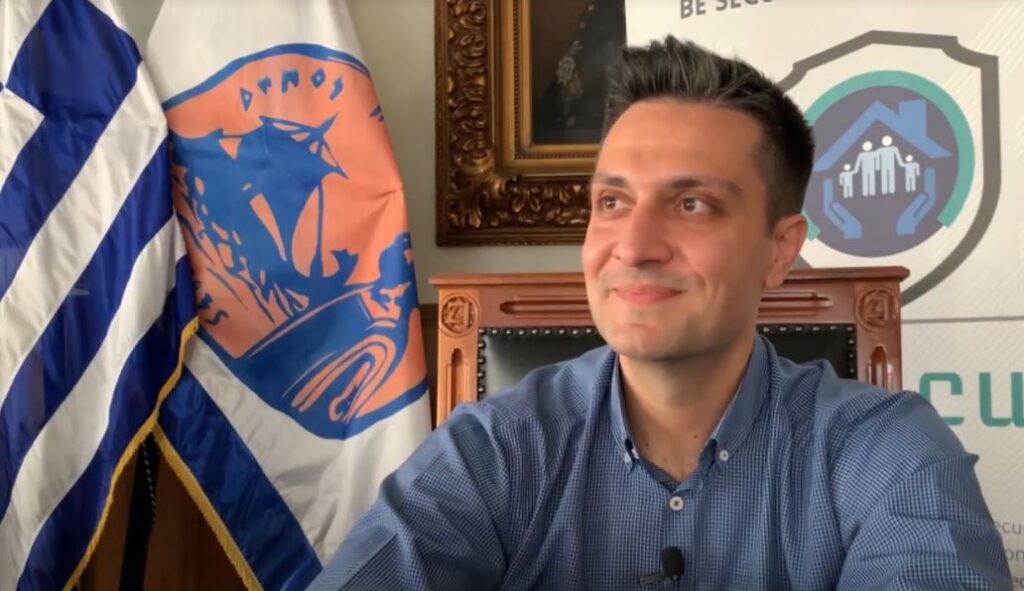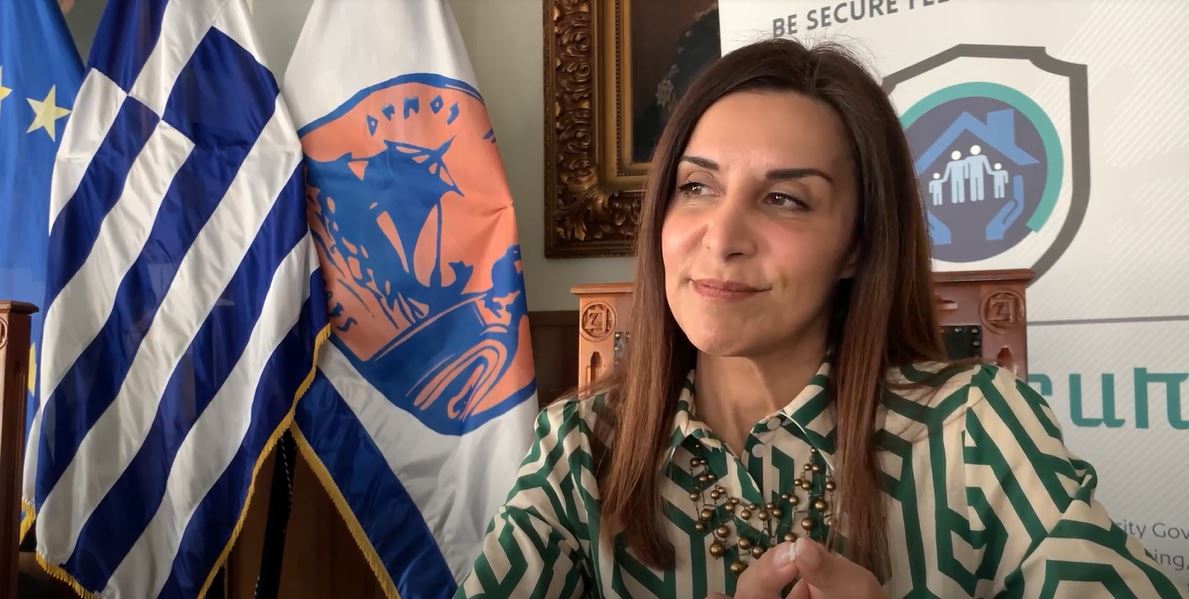May 2022 – The BeSecure-FeelSecure (BSFS) project, led by the City of Piraeus (Greece) and in which Efus is a partner, organised on 5 May a web conference on Local Crime Prevention Councils, a governance structure that has been used, notably in France, since the mid-1980s as part of national public policies on crime prevention in order to bring together a large array of stakeholders involved in local urban security.
As part of the BSFS project, whose objective is to reinforce urban security and the perception of safety in the City of Piraeus through innovative solutions, the Greek municipality recently set up a Local Council for Crime Prevention (LCCP). How is it structured and what are its main activities? What are its main challenges? What recommendations could be given to other local authorities wishing to establish a similar structure? These were the main questions discussed during the web conference, which was presented by one of the Deputy Mayors of Piraeus and president of the local LCCP, Kyriaki Bourdakou, and Loline Bertin, Deputy Mayor of Montreuil (France), a city which established a Local Council for Security and Crime Prevention (CLSPD according to the French acronym) in 2007.
Pluridisciplinary collaboration
Ms Bourdakou explained that the Piraeus LCCP aims to promote multisectoral and interdisciplinary collaboration and ensure that all voices are heard, not only those of security stakeholders but also those of citizens. As such, the LCCP in Piraeus brings together various municipal departments, criminology experts, first line practitioners and NGOs. It seeks to foster a climate of security and trust and to acquire a better picture of citizens’ daily lives in order to identify their needs and challenges.
This objective is also shared by the City of Montreuil. Loline Bertin said that the CLSPD aims to encourage the participation of residents. However, this is challenging because it means identifying and operationalising efficient communication channels with citizens as well as methods and tools to facilitate their involvement in the CLSPD’s work.
Fostering synergies
In Piraeus, the LCCP seeks to build a network of volunteers and to raise awareness among citizens and urban security stakeholders through tailored seminars. It will also promote the use of the Collaborative Urban Risk Management (CURiM) ICT platform designed by the BSFS project to foster synergies among local stakeholders and facilitate the identification, modelling, evaluation, forecasting and prevention of cyber/physical security threats.
The objectives of Montreuil’s CLSPD are to define and pilot the City’s Territorial Security and Crime Prevention Strategy (STSPD), build trust among stakeholders, conduct thematic local audits, and promote the co-production of security policies.

The challenge of citizen participation
Ms Bourdakou highlighted that a key challenge is the lack of funding for the LCCP. Furthermore, it is difficult to effectively communicate on its operations and decisions and thus involve citizens in its actions. Ms Bertin for Montreuil also mentioned the challenge of involving citizens, which her city strives to overcome by looking at how to open the CLSPD to the public and etablish resident groups.
A web conference on the CURiM platform
The third BSFS web conference, on 9 June, discussed the CURiM application through which citizens can exchange and alert one another about urban security problems in their communities. Other European and international examples of digital tools that improve social cohesion and citizens’ feelings of security were also presented.
> Dissemination videos:
- Interview with Piraeus Deputy Mayor Kyriaki Bourdakou on the LCCP: https://www.youtube.com/watch?v=mFMtyduwT5w&t=156s
- Interview with BSFS Technical Manager, Marios Zacharias, on CURiM : https://www.youtube.com/watch?v=QVVV2–mES8



